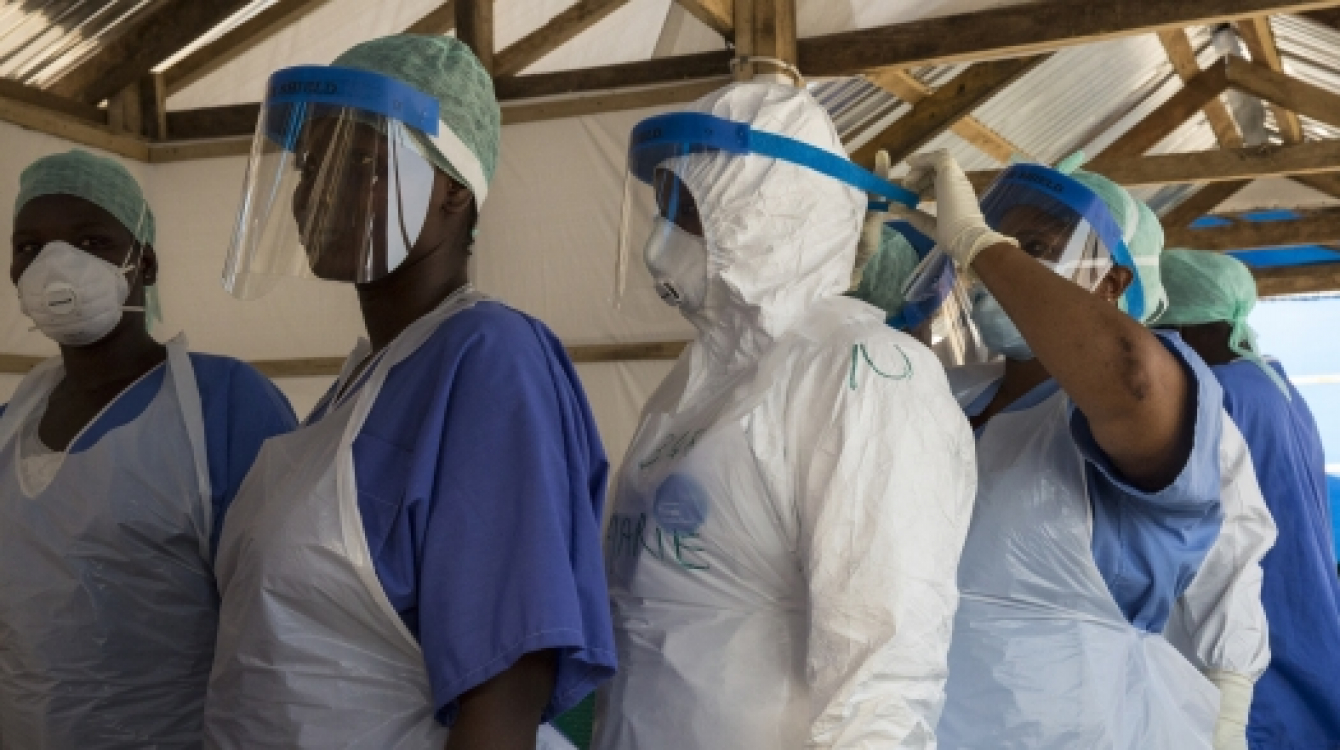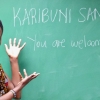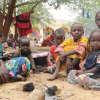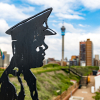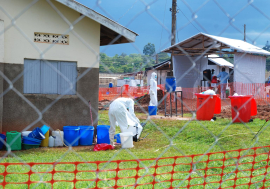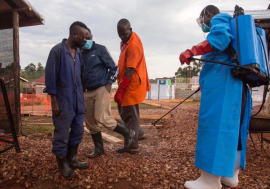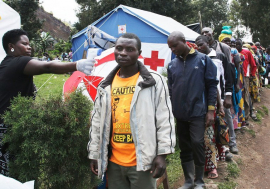How did 30-year-old Mohamed Mansaray of Sierra Leone survive the deadly virus Ebola? Here is his story:
“In October 2014 I contracted Ebola, probably from a colleague nurse or from my late uncle, who was a medical doctor and, like us, was treating Ebola patients. I am a nurse. My father was infected, then my uncle, and so on. In total, I lost eight family members to Ebola. It was the quick treatment I received at the Ebola treatment centre that saved my life,” Mr. Mansaray recalls.
With the virus currently rampaging through the Democratic Republic of the Congo (DRC), and an infection reported in Uganda in June, Mr. Mansaray wants fellow Africans in those countries to know that Ebola can be defeated. “Don’t give up! If you suspect you might have it, get treatment fast—it helps!”
Mr. Mansaray is the secretary-general of the Sierra Leone Association of Ebola Survivors, a group of about 4,000 people certified by the government as having survived the disease.
The epidemic ravaged Sierra Leone, Liberia and Guinea, while Nigeria moved fast to nip it in the bud. In total, the World Health Organization reports that Ebola killed 11,325 people in West Africa between 2014 and 2015.
Ebola is conquerable
It took more than quick treatment of infected individuals to contain the virus in West Africa; the huge operation involved contact tracers, massive communications campaigns, treatment centres in various parts of the affected countries and so on. But this doesn’t diminish Mr. Mansaray’s confidence that Ebola is conquerable.
Before 2014, two of the three countries hit hardest in West Africa, Liberia and Sierra Leone, had experienced civil conflicts, while the third, Guinea, had hosted hundreds of thousands of refugees fleeing those civil wars.
A UN peacekeeping mission was on the verge of pulling out of Liberia when Ebola struck in 2014, and the mission had to halt its drawdown plans to support response efforts by government and nongovernmental organizations.
The UN established the UN Mission for Ebola Emergency Response (UNMEER) to coordinate a response with the peacekeeping mission and other responders, as well as with the US military troops in Liberia, the British troops in Sierra Leone and the French troops in Guinea. In a nutshell, it was a highly robust operation comprising many local and international actors.
From a communications standpoint, one of the key lessons from West Africa is that responders’ unfamiliarity with a local culture can undermine Ebola response. For example, burying the dead in black bags donated by foreign humanitarian groups was unacceptable to citizens of these countries. There were stories of families exhuming such bodies. In other cases families resorted to secret burial, consequently infecting many.
Another example was the eating of bushmeat. Responders initially told Liberians not to eat bushmeat until they realized that bushmeat was a source of both protein and income for citizens. The revised message was that bushmeat could be eaten if cooked properly, and this message was effective.
In 2016, epidemiologist Osman A. Sankoh’s organization, the International Network for the Demographic Evaluation of Population and Their Health (INDEPTH), organized a workshop in Accra, Ghana, to discuss lessons learned from Ebola responses. Dr. Sankoh told Africa Renewal that despite there being no civil conflicts in the affected West African countries when Ebola began in 2014, the devastation was immense. He raises this point to underscore the need for a concerted action in the current DRC situation.
Workshop participants from 22 countries, including Sierra Leone, Liberia, and Guinea, discussed the factors that made local citizens initially misunderstand the responders’ intentions. Some citizens accused responders, particularly foreigners, of importing a “strange disease.”
In one case a Red Cross volunteer, 24-year-old Lopou Toupo, was beaten in Forécariah, Guinea, by an angry mob.
Support of political leadership
Gaining the understanding and support of Guinean, Liberian and Sierra Leonean villagers required the intervention of local community leaders, as well as active participation from top political leaders.
In Guinea, President Alpha Condé traveled to Forécariah not only to warn community inhabitants against attacks on responders, but also to enlist their cooperation in defeating the virus. Then-presidents Ellen Johnson Sirleaf of Liberia and Ernest Koroma of Sierra Leone traversed their respective countries to raise Ebola awareness.
Lisa White, who was UNMEER’s information officer in Liberia, says that Ebola is more than a health issue. “It has political, social, and economic ramifications. The response must be led by the government. In the DRC, WHO and the Ministry of Health are leading the response, which is good, but other government entities, including the presidency, must be directly involved.”
Reverend John Sumo, who led social mobilization for Liberia’s Ministry of Health during the outbreak in that country, explains that proactive engagement with the community, particularly religious and community leaders, elders and the media, was helpful in his country.
On who best to communicate Ebola messages, Rev. Sumo says that depends on each society. In West Africa, “foreigners working for the UN, the Red Cross and other international organisations were not necessarily the most effective communicators on Ebola.” He explains that when people’s lives are threatened, they want to hear from those closest to them—those who speak their language.
“There is a need to investigate information consumption patterns to understand who is best situated to communicate with the people at the grassroots level, because, let’s face it, Ebola spread fast among the grassroots population,” Rev. Sumo says.
In an article published on the website of the World Economic Forum, Saran Kaba Jones and David Norman draw inferences from the Ebola situation in West Africa and maintain that local grassroots organizations are best positioned “to operate in complex environments, to aid in more timely assessments, and to quickly disseminate information and critical services in the wake of global crisis.”
The writers add, “Due to the very nature of their proximity to a potential disaster, community-based organisations become the de facto first responders, witnessing the situation as it begins to unfold,” adding that “their knowledge on the ground can play a critical role in assessing the severity of the problem and more accurately projecting its impact.”


